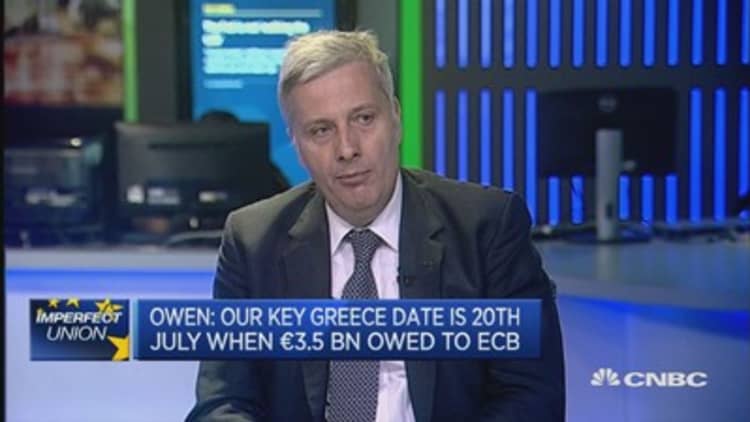Greece's controversial finance minister, Yanis Varoufakis, has blamed the euro zone's insistence on greater austerity measures as the real reason why talks with lenders are stalling, and not any lack of willingness on Greece's part to implement reforms.
In a blog post published Monday, Varoufakis said the Greek government's negotiations with its creditors have been entirely misrepresented as "unwilling" by the world's media when Athens is actually very keen to put economic reforms in place.
"The problem is simple: Greece's creditors insist on even greater austerity for this year and beyond – an approach that would impede recovery, obstruct growth, worsen the debt-deflationary cycle, and, in the end, erode Greeks' willingness and ability to see through the reform agenda that the country so desperately needs," Varoufakis said in a Project Syndicate blog post, published on Monday.
"Our government cannot – and will not – accept a cure that has proven itself over five long years to be worse than the disease," he added.
At the same time, former colleague, fellow economist and close friend of Varoufakis, Steve Keen said the finance minister was frustrated with the progress of Greece's talks with the euro zone, adding Varoufakis had compared the talks to dealing with "divorce lawyers".
Keen, chief economist of the Institute of Dynamic Economic Analysis (IDEA) who is credited with forecasting the economic crisis from as early as 2005, said the finance ministers of Europe refused to discuss certain euro policies, according to Varoufakis.
Read MoreEl-Erian: Greece 'accident' 55% to 60% probability
Keen, who also heads up the school of economics, history and politics at Kingston University in London, first met Varoufakis when they both worked as lecturers at Sydney University in the late 1980s.
When asked what they mainly discuss at the moment, Keen said, "Mainly his frustration, the fact that the one thing that he can't discuss with the finance ministers of Europe is economics," he told CNBC.
"He goes inside, he is expected to be discussing what the economic impact of the policies of the euro are and how to get a better set of policies, living within the confines of the euro and the entire European Union system, and he said they simply won't discuss it. He said it is like walking into a bunch of divorce lawyers, it is not anything like what you think finance ministers should be talking about," Keen said, adding that he thought current austerity reforms being suggested by the euro zone were a "fantasy".
ATM levy

Greece said it was in talks with Brussels, after euro zone officials suggested placing a small tax on bank ATM cash withdrawals in an effort to encourage the use of credit cards in the country. But the finance ministry in Greece said in a statement that following strong disagreement on their part, the suggestion was withdrawn from the negotiation table.
The Greek finance ministry will hold a teleconference with European officials on Tuesday evening, before the Brussels Group meets on Wednesday.
Greece has come under renewed pressure this week that the country could be on the verge of quitting in the euro zone, after the country's interior minister, Nikos Voutsis, threatened to default on loan repayments due to the International Monetary Fund (IMF) over the weekend.
to make unfair concessions in current bailout talks, without which some 7.2 billion euros ($7.87 billion) of aid frozen since last year would not be released, funds which Greece desperately needs to foot its bills.
Greece's left-leaning government, led by Prime Minister Alexis Tsipras, has put forward new proposals for its budget to the IMF, with key sticking points in negotiations including pensions and sales tax.
Greek government debt spiked on Tuesday, with 10-year yields climbing to trade above 12 percent at one point, up from Monday's close of 11.39 percent.
Varoufakis said Greece's euro zone creditors' insistence on greater austerity was "subtle yet steadfast".
"It can be found in their demand that Greece maintain unsustainably high primary surpluses (more than 2 percent of GDP in 2016 and exceeding 2.5 percent, or even 3 percent, for every year thereafter)," he said in the blog post.
"Fair-minded observers of the four-month-long negotiations between Greece and its creditors cannot avoid a simple conclusion: The major sticking point, the only deal-breaker, is the creditors' insistence on even more austerity, even at the expense of the reform agenda that our government is eager to pursue," he added.


